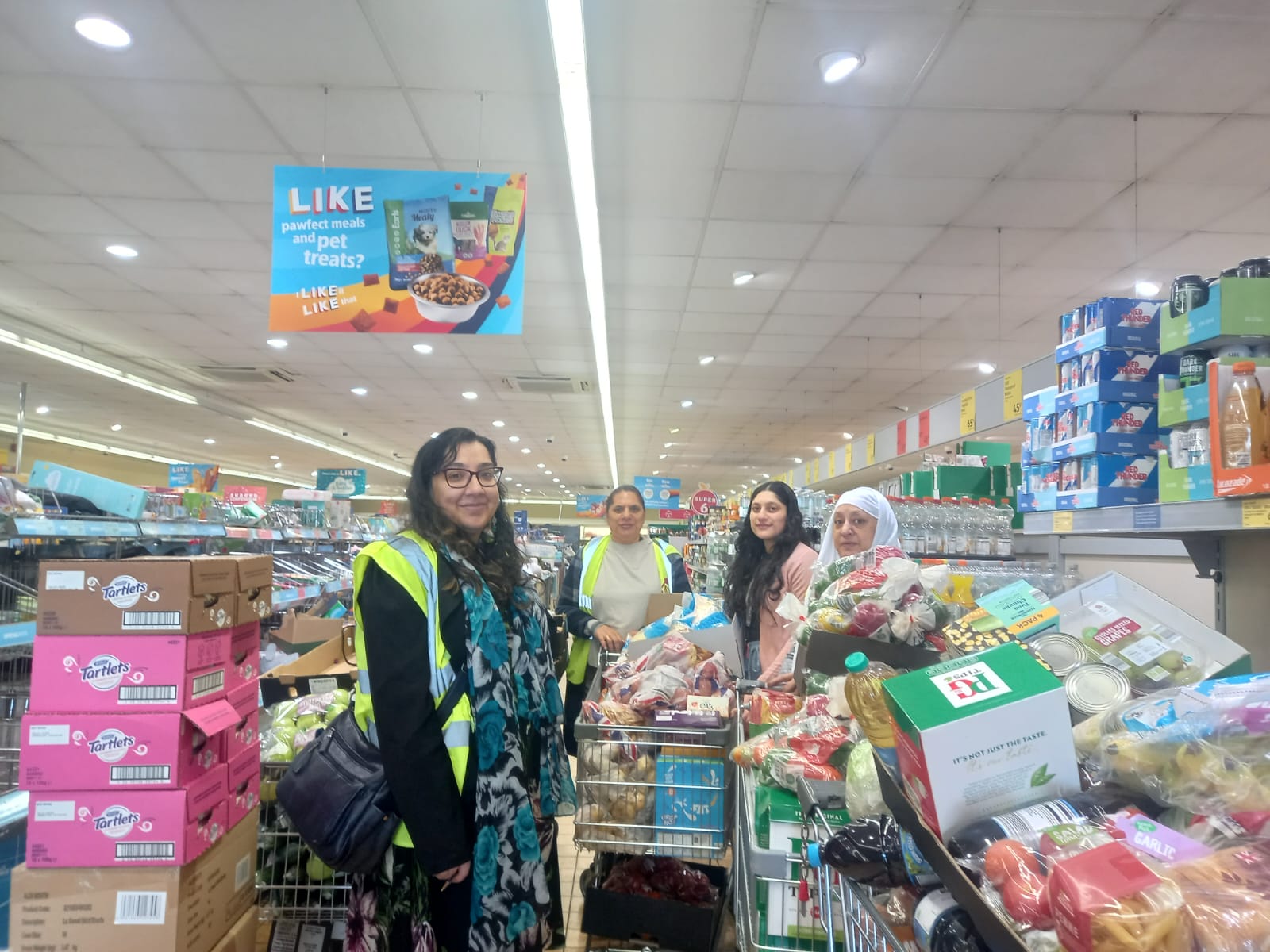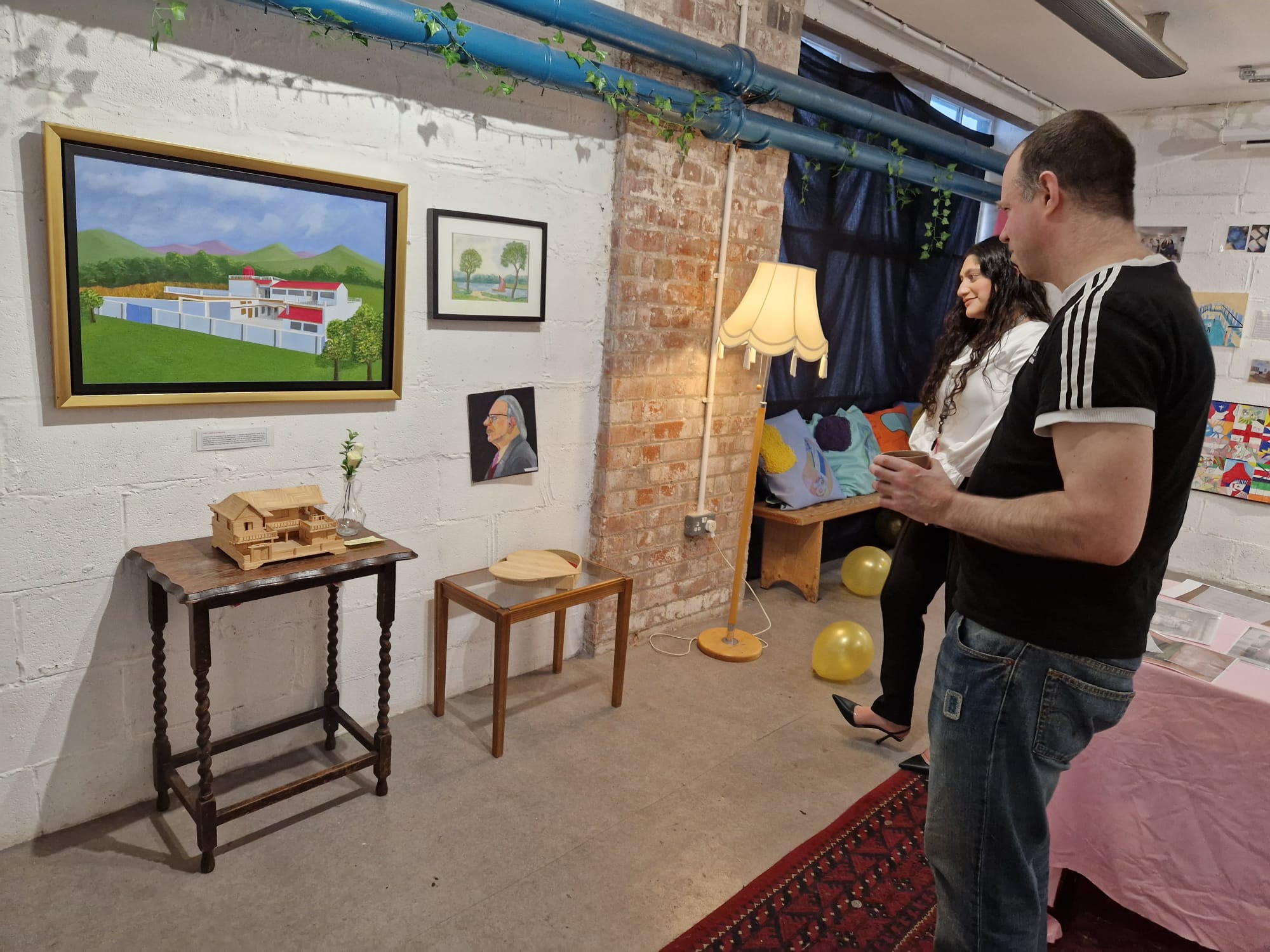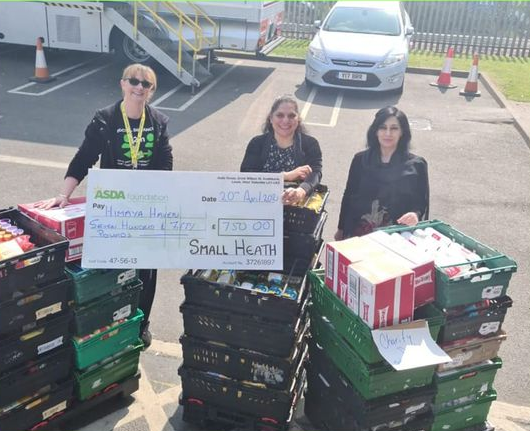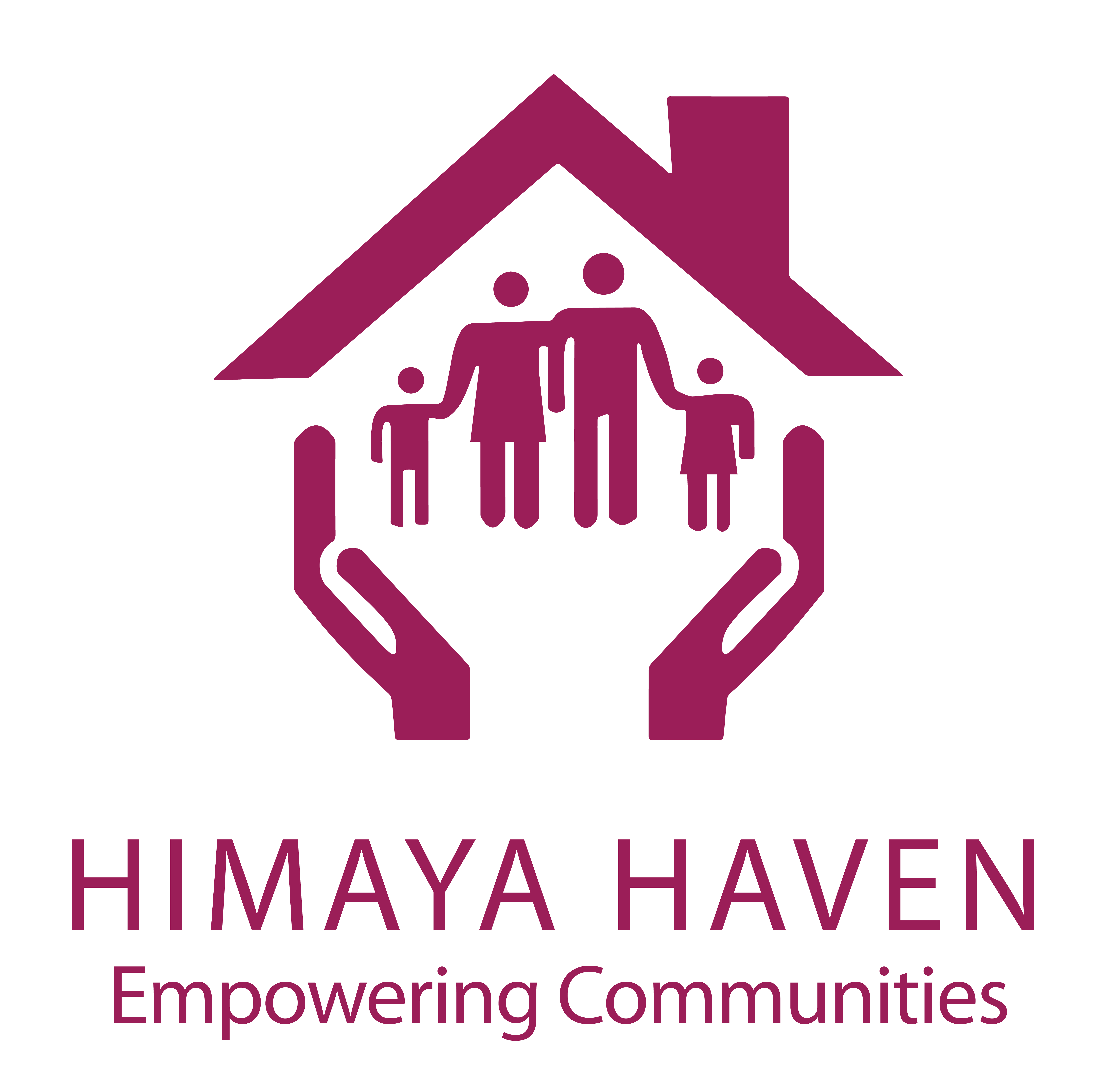Our Projects
Here are some of our projects and the impact we leave on our client base
Sparkbrook Fun Day Project 2023
Himaya Haven received funding from the West Midlands Combined Authority to organise a fun day in Sparkbrook for the families in the local community. We collaborated with KIKIT who provided the sports mania aspect.

Ramadan Prisoner Welfare Pack 2021-2024
This is a donation-centered project started in Ramadan of 2021, to provide Muslim prisoners in West Midlands with Islamic items to aid in spiritual rehabilitation.

BCC Food Hamper Project 2023
Himaya Haven received funding from Birmingham City Council to provide food hampers for their families across 6 months.

Summer Fair Project 2022
During the summer of 2022, Himaya Haven received funding from ASDA Foundation to organise their very own community summer fair in Small Heath. They provided entertainment such as music, raffle and sumo fighting and more.

Heritage Arts Project 2021
In 2021 Himaya Haven received funding from Heritage Lottery for a Heritage Arts Project with HMP/YOI Swinfen Hall.

Ramadan Food Hampers Project 2021
Himaya Haven received funding from Asda Foundation’s Supporting Communities Fund. This funding was secured to provide Ramadan food hampers for 30 of the families they support.

Christmas Hamper Project 2020
In 2020 Himaya Haven were funded by Heart of England’s Festive Fund to provide Christmas food hampers for families & individuals in need of extra help during the winter.
Client Testimonials
Case Studies
Mehvish’s son is in prison for accessory to kidnapping and drugs, which has caused a significant degree of stress and emotional strain for her and her family. Mehvish has found it challenging to communicate with prison staff and has been deeply concerned about the physical and mental wellbeing of her son. This has led to a negative impact on her own mental health and wellbeing. What’s more, Mehvish has found it challenging to navigate and engage with the CJS, feeling that her concerns are not paid attention to, creating a somewhat fraught relationship with prison services/staff.
Himaya Haven were able to support Mehvish by:
❖ Providing emotional support and a safe space for her to share and reflect on her feelings
❖ Providing regular telephone support to check in on her, so she feels she has additional support.
❖ Communicating with prison staff on Mehvish’s behalf. Himaya Haven acting as an intermediator has helped alleviate the anxiety Mehvish felt when it came to engaging with prison services.
❖ Explaining judicial procedures and policies to her.
Rebecca is a long-term Himaya Haven client who has required sustained emotional and practical support since she first came to Himaya Haven, after her son was arrested and imprisoned. She lives with long-term physical and psychological health conditions. Suffering from anxiety and mobility issues, Rebecca is also unable to utilise digital technology outside of a basic phone. Accordingly, she has and continues to be, digitally isolated from the outside world and community.
Himaya Haven were able to support Rebecca by:
❖ Regular weekly phone calls to provide emotional and practical support and to reduce her feelings of isolation.
❖ Locating information on grants and local council loans (interest free) that she can apply for.
❖ Helping her to complete online applications for state financial support/grants.
❖ Providing Rebecca with information on support available with the cost of living (from both public and private organisations like the government and energy companies)
❖ Aiding Rebecca in investigating her energy bills and helping her communicate with her energy company.
❖ Signposting Rebecca to specialist organisations that can help with benefit forms and documents.
❖ Highlighting the government financial support available to help with travel costs for prison visits.
Aliyah is 15 years old and has begun to prepare for her GCSE exams. She has found herself deeply impacted by the tensions in her parents’ relationship and requires significant emotional support. Aliyah is one of five siblings; as the second oldest, she plays an essential role in caring for the younger children. Aliyah’s mother, Maya is a client of Himaya Haven who initially required support with applying for a non-molestation order against her abusive spouse. She felt that Aliyah needed mentoring due to the family issues that have occurred over the years and the domestic violence Maya experienced at the hands of Aliyah’s father. Aliyah was assessed as requiring mentoring due to the risks associated with domestic violence for children who witness it/live in a home where it occurs.
Himaya Haven were able to support Aliyah by:
❖ Providing her with a safe space to talk and reflect
❖ Liaising with Aliyah’s school to ensure she has a robust support framework.
❖ Encouraging her to keep a journal as a means of releasing and processing her feelings and thoughts (she has found this very useful when dealing with family tensions).
❖ Encouraging her to pursue her hobbies for her mental health and wellbeing.
❖ Helping her learn techniques to cope with her with anger and anxiety.
❖ Helping her plan revision for her GCSEs.
❖ Helping her research what she needs to do to achieve her goals (for example she is determined to be a paramedic).
❖ Aliyah was given the opportunity, by Himaya Haven, to participate in a pilot panel review of funding bids for KFC foundation, which would influence the Foundation’s review system.
❖ Conferring with school to discuss application for Aliyah to be registered as a young carer -agreed school would apply.
❖ Delivering educational support (e.g., GCSE revision material).
Research highlights there are negative emotional and behavioural impacts on children when exposed to domestic violence. Such research suggests that the consequences can be both short and long-term and can vary according to when the abuse occurred and the duration, nature and frequency of the domestic violence and abuse. Furthermore, research findings have supported the assertion that children and young people who grow up in ‘violent and aggressive families’ are at a higher risk for a broad range of psychological and behavioural problems (Chan and Yeung 2009:314).






